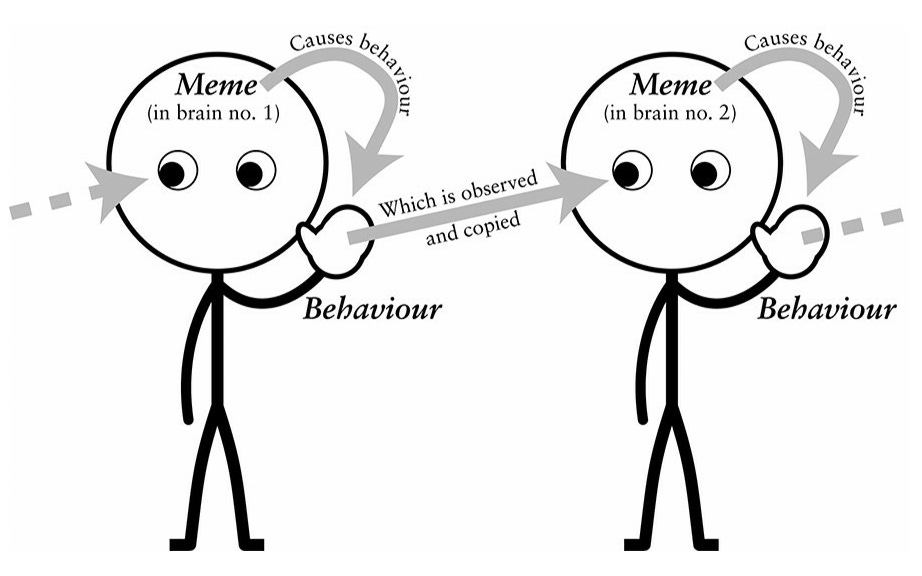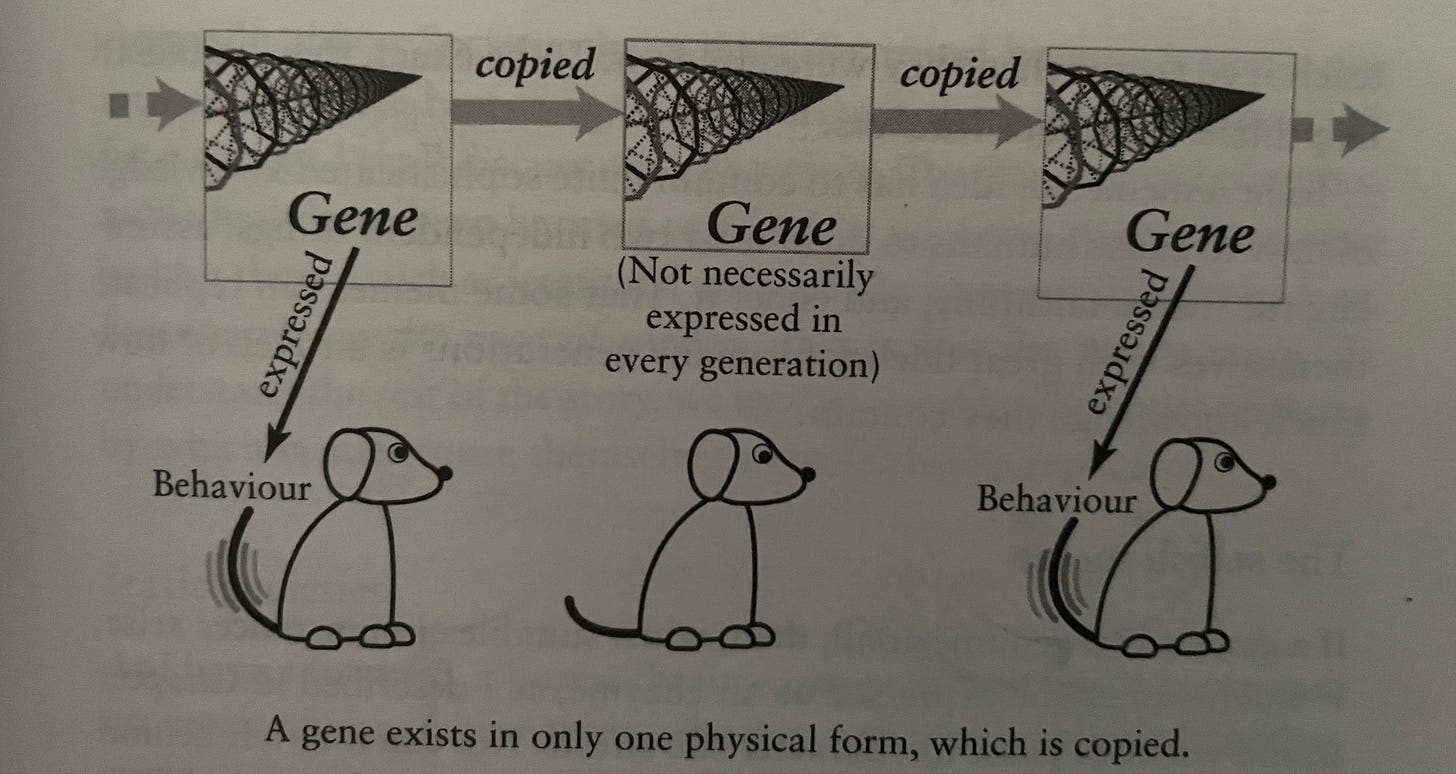I’m overall a big fan of Susan Blackmore. She was one of the first people (maybe the second after Richard Dawkins?) to recognise that memes exist and are everywhere when we look inside our culture (and brains as well if that was possible ahah). I was particularly fascinated to discover that Susan studied and wrote lots of books and papers on consciousness, Buddhism and meditation (she apparently has been practicing Zen meditation for over twenty five years). I was particularly interested in this paper on Buddhism that you can check here. I’m gonna write a blogpost in which I’m gonna present Deutsch’s argument against Blackmore’s theory of how memes get replicated but first for this blogpost it is a short introduction to memes (and genes I guess).
So first of all let me explain what memes are. This term was first coined by the very famous biologist (and atheist) Richard Dawkins, on his book “The selfish gene”. Dawkins defined memes as a unit of cultural information that is analogous to a gene, capable of being transmitted from one individual to another. This picture is very clarifying
So you’re probably wondering what’s the difference between a meme and a gene. While both are units of information replicable they are inherently different. Genes are inserted in our DNA and we inherit them from our parents. It takes slow DNA changes in order to behaviour to change (and most animals, except humans are limited to inheriting features through DNA (non explanatory knowledge as Deutsch would call it) so it will take them lots of time to actually see any progress in their lifestyle and that process will be so insignificant that they will individually born and die without seeing any progress at all). But genes also contain knowledge like I said (inexplicit type).
So gene exists in only one physical form like stated in the picture. Memes, on the other hand, exist in two physical forms, the meaning in a person’s brain and the behaviour itself (the part of the meaning is where Blackmore and Deutsch disagree and that’s what I’m gonna write for the next blogpost). Now, more than ever before, there are countless memes battling against each other inside our mind to see who gets to take the place in our mind due to the existence of internet. Here we can also see a cultural selection where memes that are surprising, funny, etc get a competitive advantage because they are more likely to grab attention and being shared. A long lived meme on the internet means that it’s a meme that is highly versatile and adaptable to the environment, it needs to be able to suffer a lot of mutations and variations. People online are constantly remixing and dropping some of the meme’s part and replacing it with personal stuff or views but that can only happen if it’s a highly versatile meme. It’s important to notice that people spend way more time on the internet than watching news, so the internt has become the principal hub of information and storage of memes. There’s this very interesting moment in “the beginning of infinity” where Deutsch goes through the question of where do jokes come from originally. It turns out that some jokes weren’t created by anyone. People tell each other stories, most of them aren’t memes but some become memes. If the story is funny or amusing enough to be told again by the person that initially heard it than it became a meme. People rarely will retell the story the way people retold them (nor do some people of course remember the exact same words). Therefore an often retold story will come to exist in different versions. And there will be more successful versions of the story that will be told more often than others, and the criteria here is that it’s for example the funniest and will tend to evolve this way. So this is the condition for evolution, repeated cycles of non literal (imperfect) copying of information alternating with selection. The way in which the joke has no author is that there could be case that a joke could evolve through variations that were not intended to be the funniest. People who hear can for example mishear it or misunderstand parts of it and in some cases by luck, it will produce a funnier version which will then propagate better. If it has evolved that way, then according Deusch it truly has no author. A static society (one whose changes happen on a timescale longer than its members can notice) is a society that suppress any kind of deviation from cultural norms of behaviour. They also don’t allow any selection or variation of memes. Let me consider for example the example of the static Sparta. If a kid who grows in Sparta and wants to be a philosopher, very unfortunately this kid won’t be a philosopher. He will constantly be punished by his “superiors” that will make sure that no such thing as philosophy is acceptable in the static Sparta. But this would even be an odd thing to happen in the first place, people in Sparta will (used to) grow and they won’t even have the change of having a thought on being a philosopher in the first place. It’s so harshly inserted in their minds that that’s not acceptable that their minds will just unconsciously and automatically reject it.
Like the name of Dawkin’s book on memes suggests, memes are selfish. It’s not nor the truer or better meme that will win. The meme that will win is the one that change its holders behaviours in a way that ensures its own transmission. We can see this clearly happening in religions (the most long lived meme), if you happen to born in a religious family you much likely will gonna be religious, and your kids, and so on. Somes memes are responsible for the fall of civilizations.
Deutsch has separated memes in two types, rational and anti rational memes. I did a quick introduction to these on my blogpost about creativity (a blogpost of the David Deutsch saga).
Creative rebellion
NOTE: this is the first post of a saga I’m doing related with the work of the physicist David Deutsch, this saga isn’t to quote david on these topics, it’s to provide simple and practical understanding of these amazing topics! All that I’m writing is my opinion, but my opinion on these topics is truly shaped by David’s opinion on these topics!




